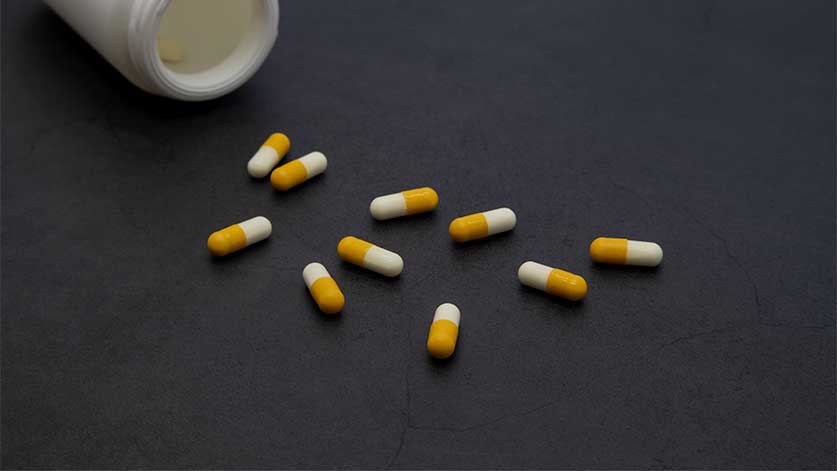Adderall Overdose | Symptoms, Prevention, & Treatment
Adderall overdose may result in seizures, confusion, and tremors. Other serious side effects include a heart attack, rhabdomyolysis, and psychosis. An overdose is prevented when drug abuse does not take place. However, there are a number of ways an overdose can be treated.

Amphetamine and dextroamphetamine (brand name Adderall for immediate-release and Adderall XR for extended-release) is a prescription stimulant medication prescribed for treating symptoms of narcolepsy and attention deficit hyperactivity disorder (ADHD).
It works by increasing the neurotransmitters dopamine and norepinephrine in the brain and stimulating the central nervous system (CNS). Unfortunately, this prescription drug has a high potential for abuse and is a Schedule II controlled substance.
College students and young adults may abuse this drug to help stay awake and study for tests. Those who do not take Adderall as prescribed may experience an overdose, resulting in serious side effects.
Symptoms Of Adderall Overdose
An overdose of Adderall can worsen any of the common side effects the medication may cause. Some side effects of Adderall, according to the United States Food and Drug Administration (FDA), consist of loss of appetite, headache, and dizziness.
Other specific overdose symptoms may consist of:
- sedation
- overactive reflexes
- hypertension or changes in blood pressure
- seizures
- confusion
- vomiting
- nausea
- tremors
- increase in body temperature
- muscle pains
There are also other life-threatening symptoms a person can experience when suffering from an Adderall overdose.
Cardiovascular Events
In addition to the above side effects, a person suffering from an overdose of this prescription medication can also experience more severe symptoms including cardiovascular health problems. In fact, an irregular heartbeat can occur, resulting in a heart attack.
Fluctuations in heart rate are a serious Adderall withdrawal symptom as well. Changes in blood pressure, body temperature, and heart rate should be monitored if an overdose is suspected.
Rhabdomyolysis
Per the Substance Abuse and Mental Health Services Administration (SAMHSA), Adderall overdose can lead to rhabdomyolysis. Rhabdomyolysis is the breakdown of skeletal muscle.
When this occurs, a protein known as myoglobin is released in the blood which can cause kidney damage. Severe muscle cramps, dark urine, and severe fatigue may accompany this potentially fatal medical condition.
Psychosis
Those suffering from overdose may experience mental health problems. Hallucinations and an altered mental state may occur.
Confusion and psychosis can also take place which can create extreme paranoia and delusions. Those with existing mental health conditions may see their conditions worsen due to increased depression and anxiety.
Adderall Overdose Prevention
The best way to prevent an overdose is to take the medication as prescribed and not engage in Adderall abuse. Speak with your local Ohio doctor about your prescription and avoid any medications which can increase your risk of overdose.
Avoid Polysubstance Use
Drug interactions can occur when a person combines Adderall with other drugs. Medications and some illicit drugs can interfere with the CNS and may lead to toxicity.
For instance, those who participate in Adderall use and abuse the following can experience an overdose:
- benzodiazepines
- opioids
- supplements
- selective serotonin re-uptake inhibitors (SSRIs)
- serotonin and norepinephrine re-uptake inhibitors (SNRIs)
- antihistamines
- alcohol
To help prevent Adderall toxicity, take Adderall as prescribed and abstain from other drug use which may disrupt your medication.
Avoid Alternative Routes Of Administration
Those who partake in Adderall substance use may increase their chance of suffering from an overdose if they use other routes of administration to achieve a greater high. Snorting or injecting Adderall can cause the drug to enter your bloodstream fast, creating almost instant effects.
Snorting Adderall can cause damage to the nasal passageways and frequent nosebleeds while injecting the drug may lead to abscesses on the skin or collapsed veins. Not only are these side effects serious, abusing Adderall in either of these ways can increase the risk of overdose death.
Adderall Overdose Treatment
According to the National Institute on Drug Abuse (NIDA), the first step in treatment is to call 911 immediately once you suspect a person is experiencing symptoms of Adderall overdose.
Immediate Treatment
If a person is taken to the emergency department, medical professionals may administer activated charcoal which can assist in absorbing the drug and easing a person’s overdose symptoms.
Healthcare workers may also monitor your heart rate and blood pressure, as well as look for any signs of seizures.
Detox & Addiction Treatment
After the immediate symptoms of overdose are treated, Adderall addiction treatment may be recommended, and detoxification is one of the first processes in treatment. Detox allows your body to rid itself of certain toxins.
This process is short-term. Throughout the detox process, you’ll be monitored by a healthcare professional.
If you or a loved one are searching for treatment programs, consider Ohio Recovery Center. At our inpatient rehab center, we provide numerous treatment options including evidence-based behavioral therapy, medical detox, and ongoing aftercare support.
To learn more about our treatment center, please contact us today.
- Centers for Disease Control and Prevention — Rhabdomyolysis https://www.cdc.gov/niosh/topics/rhabdo/default.html
- Drug Enforcement Administration — Controlled Substance List https://www.deadiversion.usdoj.gov/schedules/
- Food and Drug Administration — Adderall https://www.accessdata.fda.gov/drugsatfda_docs/label/2007/011522s040lbl.pdf
- National Institute on Drug Abuse — What are Prescription Stimulants? https://nida.nih.gov/publications/drugfacts/prescription-stimulants
- National Library of Medicine: StatPearls — Amphetamine Toxicity https://www.ncbi.nlm.nih.gov/books/NBK470276/
- Substance Abuse and Mental Health Services Administration — Treatment for Stimulant Disorders 2021 https://store.samhsa.gov/sites/default/files/SAMHSA_Digital_Download/PEP21-02-01-004.pdf

